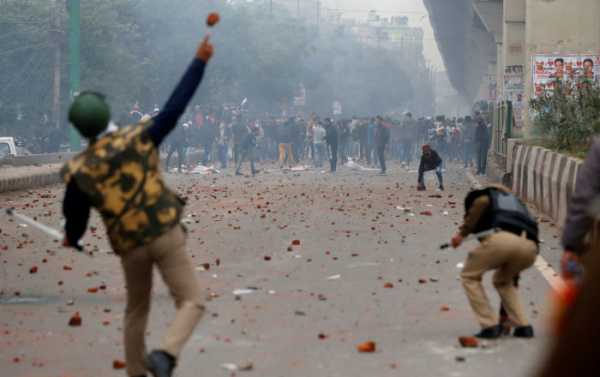
New Delhi (Sputnik): India’s federal government has enacted a new contentious law to grant citizenship to illegal immigrants from minority communities in three neighbouring Islamic countries, excluding Muslims.
The southern Indian state of Kerala is the first to take action among the five states that announced they would not be implementing the new Citizenship Amendment Act or CAA, which has triggered widespread protests across the country.
Kerala Chief Minister Pinarayi Vijayan from the Communist Party of India (Marxist) put forth a resolution in the provincial assembly on Tuesday against the law and demanded its withdrawal.
Politically-Motivated Move?
The move has, however, been deemed unconstitutional and politically-motivated by a senior jurist from the southern Indian city of Kochi.
Advocate Ram Kumar said: “The move is unconstitutional for two reasons – first it is strictly the centre’s subject and second the matter is pending in court”.
The Supreme Court of India accepted around 60 petitions against the new Citizenship Act on 18 December. While the apex court has refused to stay its implementation, a notice to the federal government and all 60 petitioners challenging the legislation was issued and said the court would take up the pleas in January.
State Doesn’t Have Power Over Federal Matters
India’s ministry of home affairs has also stated that implementation of the Citizenship Amendment Act (CAA) comes under the federal government, and that states have no power to stand in its way.
Opposition Indian National Congress legislator in Kerala, V.D. Satheesan said: “National Register of Citizens (NRC) and CAA are the two sides of the same coin. CAA is a clear violation of Article 13, 14, and 15 of the Indian Constitution”.
India’s federal government enacted the new Citizenship (Amendment) Act in the beginning of December. The controversial law grants Indian nationality to persecuted Buddhists, Christians, Hindus, Jains, Sikhs, and Parsis from Afghanistan, Pakistan, and Bangladesh, who entered India illegally before 2015.
The law, however, does not grant citizenship to Muslims from these three neighbouring countries, something that protesters and several opposition parties in the country see as a violation of the Constitution. Indian Prime Minister Narendra Modi has, however, disputed these claims, stressing that the law is not anti-Muslim.
The views and opinions expressed in the article do not necessarily reflect those of Sputnik.
Sourse: sputniknews.com






